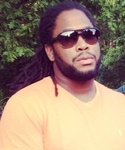A woman waiting in the wings of Suffolk Superior Courtroom is called to Room 817, where 16 jurors will be selected for an upcoming trial. She is one of 75 people who will face the same routine questions this Wednesday morning.
She is one of few who has trouble understanding the routine, in its English language.
“I understand very little,” she finally says when Judge Patrick Brady asks her if she has anything to tell the court. He’s looking for reasons people should not serve.
“But you understand me?,” he asks.
She repeats, “I said I understand little.”
The ten-second conversation is a followed by a swift decision to dismiss the Spanish speaker from jury duty.
The scenario is common for citizens who do not speak English well, known as limited English speakers. In courtrooms across the nation, and in Boston, it most always comes down to a tug-of-war, with a judge who worries of excuses while a juror doubts her ability to make a life decision.
Few judges or jurors turn to the third option of interpretation services, resulting in a progressive city that is struggling to fairly represent the community. The seat for the person who speaks another language, for the bilingual or for the immigrant turned citizen who speaks with a thick accent is often lacking.
The reasons are many, fueled mainly by fear of language error in the courtroom. Some legal experts and researchers say the consequences are dire.
Of the 13 million U.S citizens that are limited English proficient speakers, 11.3 million are people of color, according to the National Center of Immigration. This, legal experts agree, has led to major racial under-representation in juries, a problem they believe is only likely to grow given the melting pot tendencies of the U.S.
***
The jury being chosen on this Wednesday will decide the fate of two young men, Reginald Holley and Oasis Pritchett. Race and culture may be significant in this case: Holley and Pritchett, both black, are being tried for the 2012 death of hispanic youth, Alfonso Rivas.
Massachusetts is one of seven states that requires jurors to speak, understand or communicate in English. Known as one of the most liberal states, this rule places Massachusetts somewhere in the middle of the national spectrum in terms of strictness.
Arkansas, Connecticut, Georgia, Michigan, Minnesota, New York, and Washington all apply the same rule: that jurors must speak, understand, and communicate in English. Other states like Alabama and Colorado are stricter, asking that all jurors also read in English.
States like Arizona and Ohio are more flexible, asking that jurors only understand English.
The regulations make little difference though, legal experts say; the decision of who serves tends to fall to the judge, the prosecution and the defense.
“Serving on a jury is not a fundamental right, but it might as well be,” says Jasmine Gonzales Rose, a law professor at the University of Pittsburgh. She is among the first legal experts to address the issue of language disparity in juries, having published her second paper on the topic last month in the Hastings Law Journal.
Many are quick to claim that minorities commit the most crimes, Gonzales Rose adds. It’s a fact proven by the most recent data from the Bureau of Justice Statistics which shows that a little more than half of the people in prison nation-wide are minorities.
However, people are not so quick to recognize that the juries for so many of these assailants lack familiar faces representing their community.
The notion that nothing was amiss was present at Holley and Pritchett’s jury impanelment April 7. On the first day, not one person who said they may struggle with English was chosen.
Andrew Ferguson, author of Why Jury Duty Matters: A Citizen’s Guide to Constitutional Action says the lack of diversity in jury panels is legitimate but sadly not the greatest concern of the court. Instead, the concern falls to the defendant.
“Many times, defendants look around at the jury veneer and do not see people like them,” said Ferguson, who was a public defender on many homicide cases in the District of Columbia.
***
The 16 men and women of Boston eventually chosen for this jury came from a pool of almost 100 people who were randomly selected to appear at Suffolk Superior Court. Earlier in the day, they waited with many others in the second floor of the courthouse, as happens every day with a different pool of people.
The routines are similar, language barriers aside. They sip their morning coffee by a coffee-stand, most begrudgingly and tiredly waiting to serve their jury duty.
The potential jurors then flock to another floor, where they pack into a room to await instructions on performing jury duty. Justice Brady explains the facts of the case and lists reasons individuals may not serve: relation to anyone in the trial, personal bias and at the very end, the ability to understand and communicate in English.
He asks anyone with issues to raise their hand. They will report their answers during a personal conference with the judge later in the day.
“Many people speak a language other than English,” Brady explains. “Some have been here for years and speak very well while others speak very little. A reasonable ability is necessary to participate.”
***
When deciding whether a non-native English speaker should serve, courts may weigh several factors including the potential cost of translators and fears of bias, mistranslation and disruption.
The cost of allowing citizens who struggle with English to serve can be hefty if it means interpretation services must be provided. Those costs can rack up, depending on the length of the trial.
Others worry that these interpretations may come with bias, mistranslation or create disruptions in the courtroom.
Mostly, the fear comes from the extra person in the deliberations room, Ferguson said: The person listening to deliberations, but not a juror.
Yet non-juror presence in deliberations is nothing new. All court systems allow for interpreters for the blind, deaf and disabled people.
“The courts have responded by saying yes, we can certainly accommodate people who are blind and deaf,” Ferguson said. “So why not the English language?”
***
The efforts to aid those with difficulty in the English language are available, if sought, in Boston.
Almost 300 interpreters, representing 53 different languages, mostly Spanish, are available, according to the Suffolk Superior Court website.
Often, interpreter requests come from the defense, if their defendant does not speak English well, or from the prosecution if testimony is in another language. Jurors who receive a jury notice can call to request one or one can be requested for them if selected for jury duty.
The number should be large for those requests; in Boston, 36 percent of the population speaks a language other than English at home, according to the U.S. Census.
“There’s this underlying reality that there are many people who don’t speak English well and a recognition that our courts aren’t as diverse as our community,” said Ferguson. “Opening up a jury world for those who don’t speak English is a difficult question.”
The blame is hard to pinpoint and an answer is even harder to find. Often, the fear isn’t just from the court but from the limited English speakers, as well.
One woman at jury impanelment at another murder trial last month told the judge she could speak English but not “professionally.” The judge looked at her confused and she went on to explain, the legal jargon worried her. It was a popular sentiment among the many jurors questioned.
They exchanged remarks but in the end her fear was prevalent and she was excused.
“They are discouraging people who show up willing to serve,” said Gonzales. “They get them to think they’re just not educated enough and so forth. ‘I’m just not qualified enough,’ and you end up with a jury pool that really is not representative or fair.”
***
Last summer New Mexico became the first state to guarantee citizens the right to serve on a jury, regardless of any familiarity with English.
Now jury selection there is being studied to see what effect, if any, the law has.
Markus Kemmelmeier, a researcher at the University of Nevada, has focused his studies on interpreters in the court system. He considered a number of pieces of evidence and conducted mock trials and found the interpretation had little influence.
“It doesn’t do any damage and if anything it enhances the experience,” he said, adding that presence of the interpreters stopped people from talking over each other and forced them to be more aware of their attention to the case.
Despite the success in New Mexico, legal experts don’t expect to see such a model in other states anytime soon.
***
In a city that prides itself on its strong American roots, the solution for many is simple: learn English. Its become a joke for many when representing hardcore American stereotypes but experts say there is truth to the statement.
“People just believe that language requirement is race neutral, that you can’t possibly discriminate on the basis of language,” Gonzales Rose said. “It’s very accepted and there’s this idea to simply learn English because unlike the racial discrimination experience of say African Americans who could not change their skin color, everyone has that person who has studied and learned English.”
Latinos are the largest minority affected by language access in the courtroom. Over a quarter of the population in Boston identifies as Hispanic, according the city’s census. The second largest minority that follows are Asian-American. Boston is also known for its large Cape Verdean population. Those residents could require interpretation services, too.
“Massachusetts is pretty progressive but it’s not a border state so they’re not going to be aware of the problems limited English speakers or bilingual jurors face,” Juan Perea, a key expert analyzing a landmark New York case on jury selection from 1991.
In that case, two bilingual— English and Spanish speaking— potential jurors were dismissed in the murder trial of Dionisio Hernandez, a Hispanic.
For Spanish-language testimony at trial the Court’s official record was the English interpretation. The prosecution feared bilingual jurors would only listen to the Spanish testimony. The two bilingual jurors told the Court they would not do so.
“It’s the ultimate irony,” said Juan Perea, a key expert analyzing the Hernandez case. “Here they are, they learned English and we still said that’s not good enough.”
Hernandez was convicted of the charge, but appealed for the dismissal of the jurors. His appeal was denied.
Legal experts differ on whether racism is involved in the exclusion of these speakers in the courtroom but they agree fear is the motivator, with many courts unaware the discrimination line they’re threading.
“Someone’s life is on the line, they have to think, “Does this person understand what’s going on well enough,’” said Ferguson.






